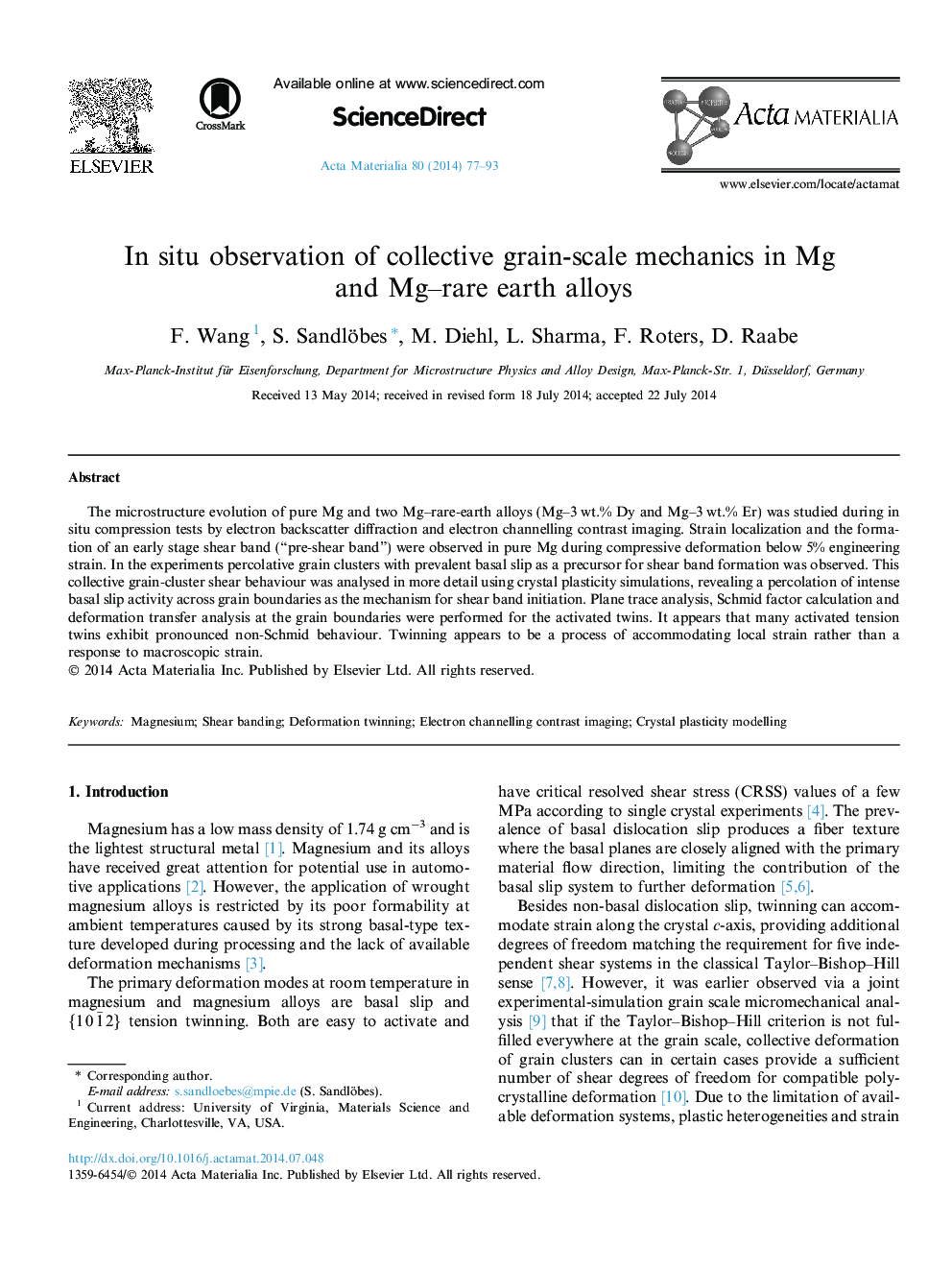| Article ID | Journal | Published Year | Pages | File Type |
|---|---|---|---|---|
| 7880981 | Acta Materialia | 2014 | 17 Pages |
Abstract
The microstructure evolution of pure Mg and two Mg-rare-earth alloys (Mg-3Â wt.% Dy and Mg-3Â wt.% Er) was studied during in situ compression tests by electron backscatter diffraction and electron channelling contrast imaging. Strain localization and the formation of an early stage shear band (“pre-shear band”) were observed in pure Mg during compressive deformation below 5% engineering strain. In the experiments percolative grain clusters with prevalent basal slip as a precursor for shear band formation was observed. This collective grain-cluster shear behaviour was analysed in more detail using crystal plasticity simulations, revealing a percolation of intense basal slip activity across grain boundaries as the mechanism for shear band initiation. Plane trace analysis, Schmid factor calculation and deformation transfer analysis at the grain boundaries were performed for the activated twins. It appears that many activated tension twins exhibit pronounced non-Schmid behaviour. Twinning appears to be a process of accommodating local strain rather than a response to macroscopic strain.
Related Topics
Physical Sciences and Engineering
Materials Science
Ceramics and Composites
Authors
F. Wang, S. Sandlöbes, M. Diehl, L. Sharma, F. Roters, D. Raabe,
